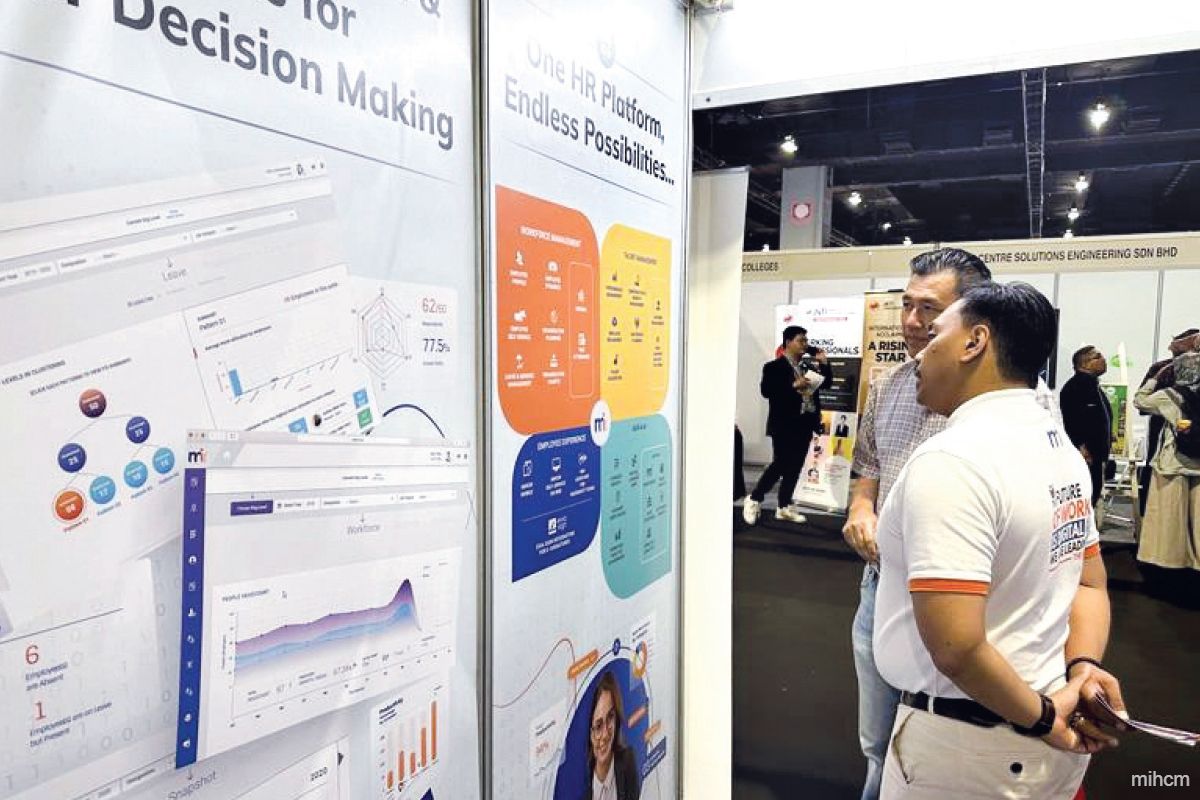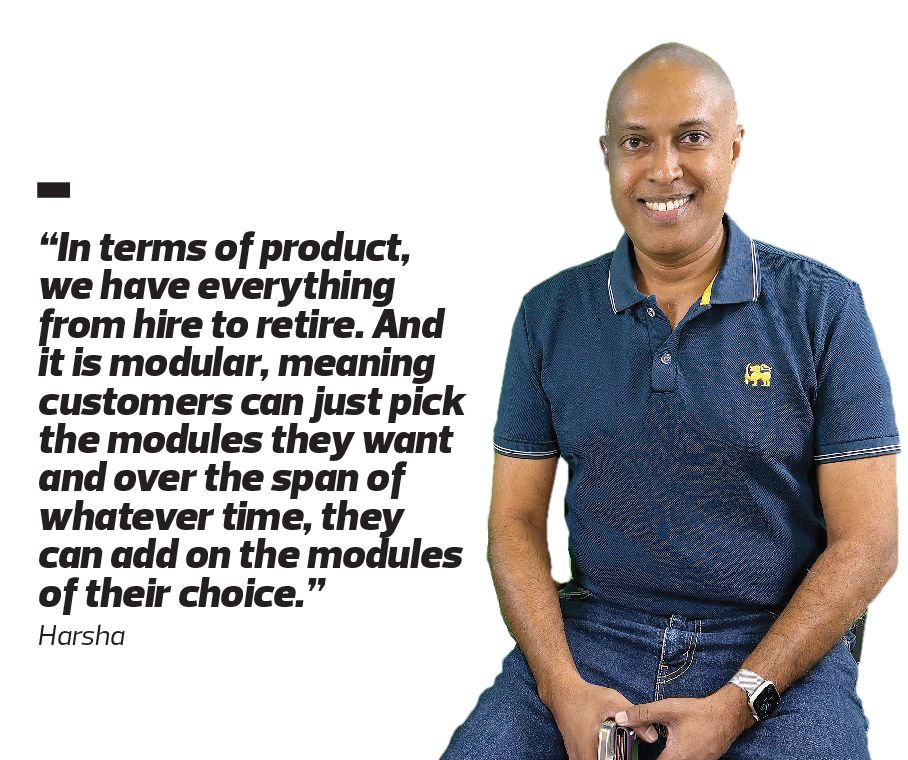This article first appeared in Digital Edge, The Edge Malaysia Weekly on January 13, 2025 - January 19, 2025
When ChatGPT was launched, Harsha Purasinghe, CEO and founder of Malaysian digital HR platform provider MiHCM, immediately saw the potential of generative artificial intelligence (Gen AI) in the HR space. The technology could be used to solve gaps identified by his team.
This potential became action, with the launch of the Smart Assist AI into its HR platforms for clients both locally and globally, from small businesses to large corporations such as Bursa Malaysia and Myanmar’s Ayeyarwady Bank.
Dubbed “Copilot for HR”, Smart Assist is an AI directly integrated into MiHCM’s HR platform, the first in Malaysia, and its use cases show the start of how AI can transform and streamline HR departments in businesses big and small. (Copilot is Microsoft’s AI companion).
“In terms of product, we have everything from hire to retire. And it is modular, meaning customers can just pick the modules they want and over the span of whatever time, they can add on the modules of their choice,” says Harsha.
Smart Assist acts as an AI companion to the existing platform. It can utilise Gen AI capabilities to quickly draft job descriptions or letters of appointment, transfer, promotion and so on, customised to the situation and context.
Unlike drafting a job description directly through ChatGPT, which would create a generic document based on common templates, Smart Assist is tied to the same HR platform the company is using and has access to all relevant documents within the company’s library, and is thus able to generate documents with company-specific context.
“Today, even a small business can generate job descriptions on the fly using AI and tweak the way it wants further ... This is a very powerful tool that enhances the productivity of HR users and also avoids needing to pay consulting fees,” Harsha adds.
Having Gen AI tied directly to a company’s HR department allows HR to fully utilise their data. Examples, Harsha says, are performance reviews and an employee’s career path. With integrated AI, Smart Assist can scan available documents in the company’s library on the platform to analyse previous job performance, strengths and skills to generate an appropriate plan.
“So the AI will generate a career progression plan for the best performers. Career development goals are highlighted so you can further click and implement the plan ... We are bringing this into all the other areas of HR as well, especially learning,” explains Harsha.
“Today, one of the biggest [topics] is how to upskill staff, reskill staff. The AI can recommend the training that is required based on the skill level you have and the skill level required by the company.”
In addition to Smart Assist is MiA, an AI chatbot directly integrated into MiHCM’s platform. By simply chatting with MiA, employees can have general HR inquiries — such as making claims or applying for leave — answered immediately.
“Employees can ask stuff like, ‘give me an update on the sales pipeline’, or ‘give me an update on our project timelines’. As long as that data is trained on our MiA model, you can ask it,” Harsha says.
Building on top of Microsoft Azure and beyond
With the premise that Smart Assist is like Copilot, the question that comes up is “Why not just use Copilot?” Harsha explains that Smart Assist is directly trained to be used specifically for HR purposes — a narrower AI as he describes it.
With that said, MiHCM worked with Microsoft for its AI. All of MiHCM’s data and AI employees are Microsoft-certified in data science with skills in OpenAI, machine learning, SQL Server and so on.
MiHCM’s platform is also built on Microsoft’s platform and its AI runs on Microsoft data centres, leading to seamless integration such as MiA working with Microsoft Teams, and Smart Assist itself is built using Microsoft Azure’s OpenAI framework.
“We built it through Azure’s OpenAI ecosystem because Microsoft put all the enterprise security and guard rails, which we don’t need to worry about,” explains Harsha.
Though the AI was built on a proven language model, it is still new with kinks and issues being worked on. Regular engagement with clients is needed to improve the AI’s ability, like screening the data quality of the company, since an AI is only as good as the data provided.
“We are working on building AI capability to screen the data quality [of the company] and generate reports for the user like a HR manager to say, ‘Your skill data is flawed, you have gaps in your profile data … Therefore, some of the results the AI will generate will be flawed’,” says Harsha.
Hyper-localised approach to AI
MiHCM has a global presence, from South Asia to Africa. But each country has its own policies, especially when it comes to AI. This is where Harsha sees a hyper-localised approach as being a real benefit for AI integration.
A hyper-localised approach means that his company tailor-makes its products and services to follow the local government’s policies.
This approach ensures that regardless of where a company’s branch is, as long as it is covered by MiHCM, all processes will follow local laws and practices. So companies would only need to onboard one HR digital system instead of separate ones in each region.
This has become especially relevant now with the launch of its integrated AI, as the AI will follow local regulations and ethics, while also ensuring the data being used remains local and relevant, enhancing its performance.
However, with AI regulations still being updated, teams working on AI integration need to keep an ear to the ground to ensure their business follows the latest policy. This creates the challenge of keeping up with trends and potential issues such as data sovereignty.
“We want to go to each territory and understand what the respective country’s AI policies look like. What are the guard rails? For example, the Philippines doesn’t have a Microsoft data centre, so their data is parked in Singapore,” says Harsha.
“Malaysia is going to have its own Microsoft data centre soon, so for Malaysian customers, it’s easy, we move everybody’s [data] to Malaysia. But in the Philippines, we are not going to do that because we don’t have a place to move our Philippine customers’ data.”
As not every country has its own data centres, policies on data and AI have to be done locally and will lead to major regulatory blocks. For now, MiHCM is safe in Singapore, Malaysia, and soon Thailand and Indonesia, as Microsoft has announced the setting up of data centres in these countries. But plans and safeguards need to be put in place in the event the blocks occur.
Save by subscribing to us for your print and/or digital copy.
P/S: The Edge is also available on Apple's App Store and Android's Google Play.
- Asia stocks, oil prices plunge; markets hunger for rapid US rate cuts
- FBM KLCI down 4.17% to more than two-year low on global trade war woes
- Trump team rejects market fears, shows defiance on tariffs
- Malaysia should not panic, rush into decisions over US tariffs, says Amir Hamzah
- S&P 500 futures slump as tariff turmoil deepens
- Poh Huat dips to 32-month low as analysts flag earnings risk from US reciprocal tariffs
- China has already trade-war-proofed its economy
- LG Energy Solution flags 138% rise in 1Q operating profit
- Oil plunge deepens on fears global trade war could trigger recession
- TikTok deal stalled by China’s objections to tariffs, Trump says




